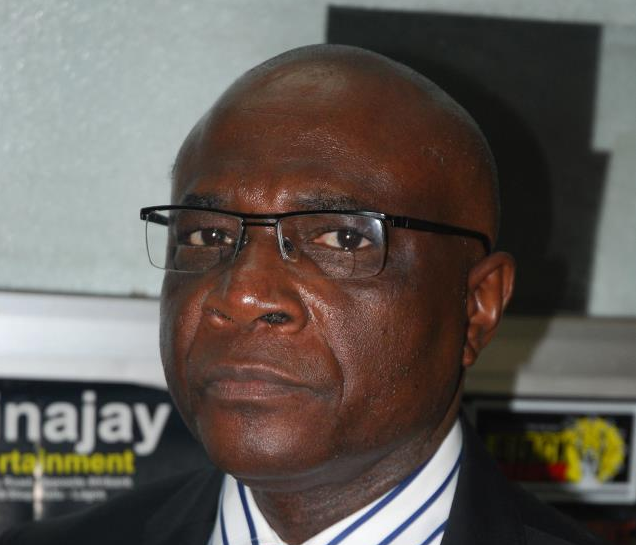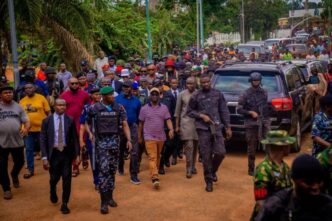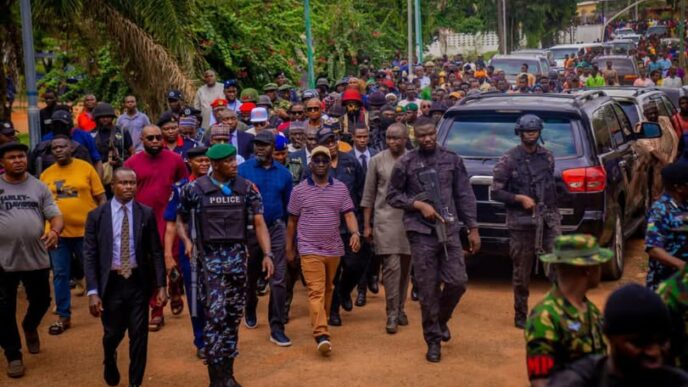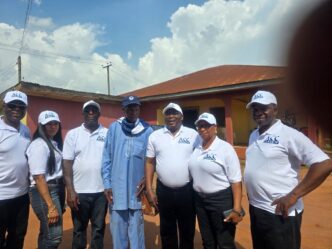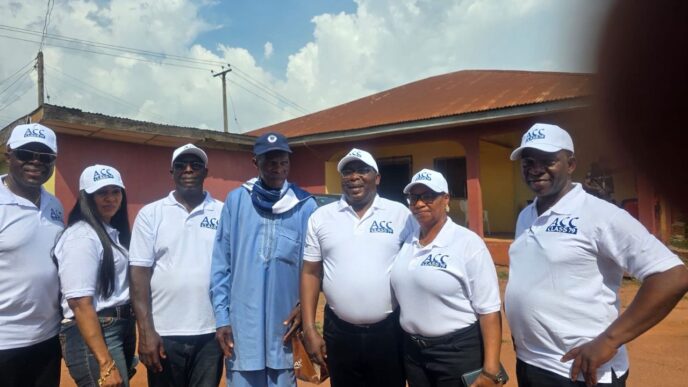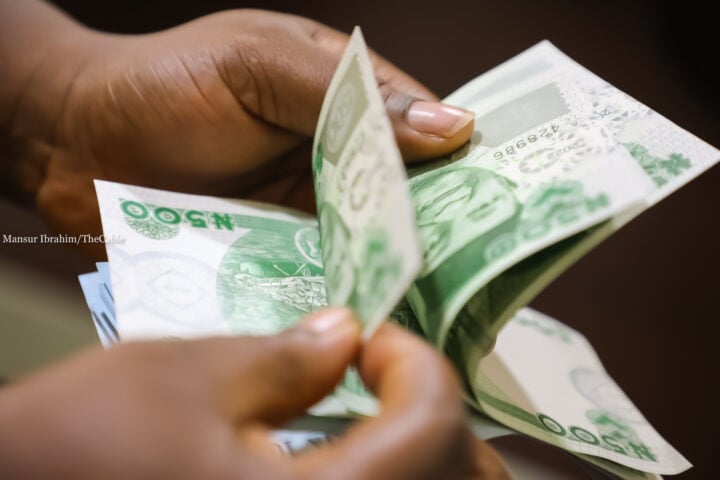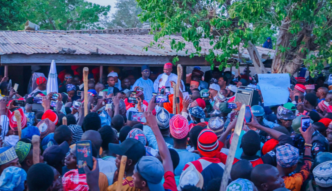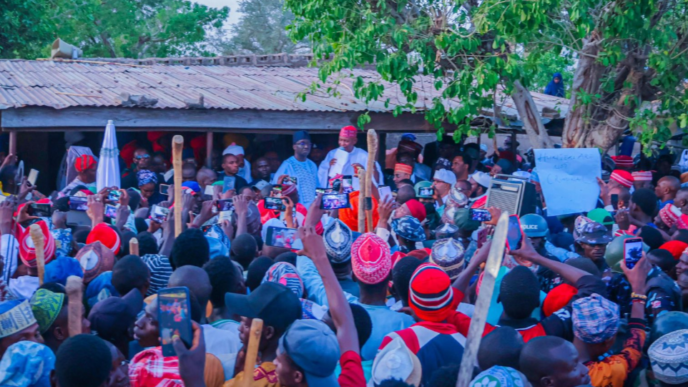In the annals of the struggle for democracy in Nigeria, Bayo Onanuga President Tinubu’s Special Adviser on Media and Strategy is reckoned with in folkloric terms. He is rightly regarded as one of the icons of the media angle of the struggle with his serial publications on the military dictatorships of Generals Ibrahim Babangida and Sani Abacha which earned the ire of both regimes to the extent of his being declared a person of interest by the various agencies of state.
In those dark days Onanuga prosecuted his media crusade against the military rulers with elan. In his efforts to stay one jump ahead of the authorities he had to switch the production of his popular newsmagazine ‘’The News’’ from its regular production premises to discreet production places in Ijebu dominated Somolu/Bariga area of Lagos. Although the tight and uncertain production schedules always resulted in the magazine turning out of lesser quality in terms of aesthetics, layout and grammatical and other production errors, nevertheless, the magazine was always eagerly expected at the stands and routinely sold out faster than other publications.
As he was always on the run Onanuga had to dispense with many of the luxuries and normal conveniences that a less challenging life could have offered him. But because he was wedded to the struggle for enthronement of democracy in the country he learnt to accept and live with the challenges entailed.
It is against this background that one finds Onanuga, one of the authentic heroes of the democracy we now enjoy, turning full circle to become one of the full time, unabashed enablers of the budding despotism of President Tinubu’s administration.
Advertisement
Onanuga’s metamorphosis from an underground fighter and hero of democracy to a cheerleader and willing agent of disunity and the anti-democratic policies have been evident since the coming of the Tinubu administration. At the advent of the administration, Onanuga was reported to have issued a statement calling on Igbos resident in Lagos and the South western part of the country not to interfere in the politics of Yorubas. He pointedly said in his admonition to the Igbos that ‘’Let 2023 be the last time that Igbos should seek to interfere in Lagos politics. Let there be no repeat in 2027’’. Of course one could say that in context Onanuga was probably reeling from the shock defeat suffered by his principal Bola Ahmed Tinubu in the presidential elections of 2023 in Lagos. But if anyone was in doubt that Onanuga actually made that statement Onanuga reiterated his views ‘’let me make myself abundantly clear; the views I expressed are my personal views. I don’t owe anybody any apology for addressing the existential threats of our people (Yorubas). I am after all a Yoruba before being a Nigerian’’.
Onanuga’s descent into ethnic politics also runs anti-clockwise with what we have been led to believe on his stand on democracy in the country. As head of the President Tinubu’s team of publicists, Onanuga has been seen promoting a dangerous toxic mix of ethnic and anti-democratic statements against President Tinubu’s perceived political opponents which cast questions on his favourite reckoning as a hero of democracy.
His public statements in response to legitimate questions about president Tinubu’s policies often are vituperative and threatening. Onanuga misreads his brief as one that grants him license to be impatient, irascible, insufferably arrogant and petulant instead of being persuasive and positively engaging. He probably does not know-and may not have been coached-that his brief entails smoothening and clearing the rough edges of presidential pronouncements and policies thereby winning over the hearts and minds of Nigerians on behalf of the president.
Advertisement
It is sad to see Onanuga deploy this tone and posture as his preferred mode of addressing opposition figures Peter Obi, Atiku Abubakar, Nasiru El-Rufai and others who have had genuine cause to differ from Tinubu’s policies and pronouncements on issues affecting Nigerians especially the administration’s tending towards despotism. In place of enlightenment and persuasive reasoning to explain away issues, Onanuga throws in crude and inelegant phrases that betrays him not as one expected to provide the necessary shine and illumination to his principal but as one engaged in an alley fight.
Against this background Nigerians have thus been asking whether the Onanuga who fought for democracy against military despots is the same as the one who is now strenuously defending and even seeking to brow beat Nigerians with threats against expressing their constitutional right to freedom of speech and association? Did Onanuga’s fight for democracy end with the election of President Tinubu? Was he motivated to fight for democracy on the basis of ethnic considerations at the time because he an irredentist Yoruba apologist as he pointedly admitted, saw IBB and Abacha as northerners who should be opposed rather than as aberrant interlopers in government? Now that President Tinubu is by all accounts turning himself into a despot and has by contrast become a far worse economic manager than IBB and Abacha why is Onanuga presently fighting and threatening Nigerians who are speaking against such similar tendencies observed in Tinubu? Is Onanuga on a mission to stop Nigerians from taking a cue from his fight against military despotism to also challenge emerging signs of civilian despotism by Tinubu?
Bayo Onanuga now ensconced as a flunkey in the Tinubu administration has probably forgotten the example he set in the struggle for install democracy in the country against military rule must not stand in the way of Nigerians legitimately seeking to call out president Tinubu from going the way that the military dictators he opposed went and which he and others helped to show the way out.
What is President Tinubu up to?
Advertisement
From the minute he was inaugurated, President Tinubu has been embarking on the systematic paring down on the foundations of Nigeria’s democratic structure. In some cases he does that surreptitiously. And in others he takes the straightforward frontal approach guessing that Nigerians in their dire economic and social condition will only grumble and not resist. He is also relying on the deep primordial religious and ethnic divisions among Nigerians to push through his anti-democratic agenda.
But above all the fact that President Tinubu is able to assault the foundations of our democracy is due to his capture of the Judiciary and the National Assembly, two of the three independent arms of government. Nigerians find it curious that few if any of the cases brought against President Tinubu’s administration so far had succeeded. Nigerians also observe with concern that with the leadership of both chambers of the now beholden to him he can always get his favourite bills through, even by sleight of hand if and when necessary.
That explains how President Tinubu was able to circumvent the relevant provisions of the constitution in his declaration of state of emergency in Rivers state. And just last week we have seen how the House of Representatives rushed through the passing of several bills which should have had the benefit of a robust debate and resolution. Some of these bills if eventually passed will change the constitution in fundamental ways without the contribution of the Nigerian people. Take for instance the provision for a Prime Minister. It is modelled along the French system where the President appoints the Prime Minister and the cabinet. This will abrogate the office of the Vice President in the present constitution. The bills for the selective creation of Local Governments and States have also been passed. This is happening in a country complaining about lack of funds to run the government.
This is not the democracy we all fought for. This is the markings of Tinubuocracy where the present constitutional and institutional powers and structures are gradually and systematically cannibalised to be replaced with a constitution that favours President Tinubu’s agenda for consolidating and exercising personal power over Nigeria.
Advertisement
From this it is obvious that whatever President Tinubu is planning per the 2027 elections and beyond cannot be for the good of the generality of Nigerians. It behoves on Nigerians to wise up to this fact.
And it is time for the grandees of the Nigerian estate to apply the principles of noblesse oblige and enlightened national interest to call President Tinubu to order before it is too late to do so.
Advertisement
Gadu can be reached via [email protected] and 08035355706 (Texts only)
Advertisement
Views expressed by contributors are strictly personal and not of TheCable.

